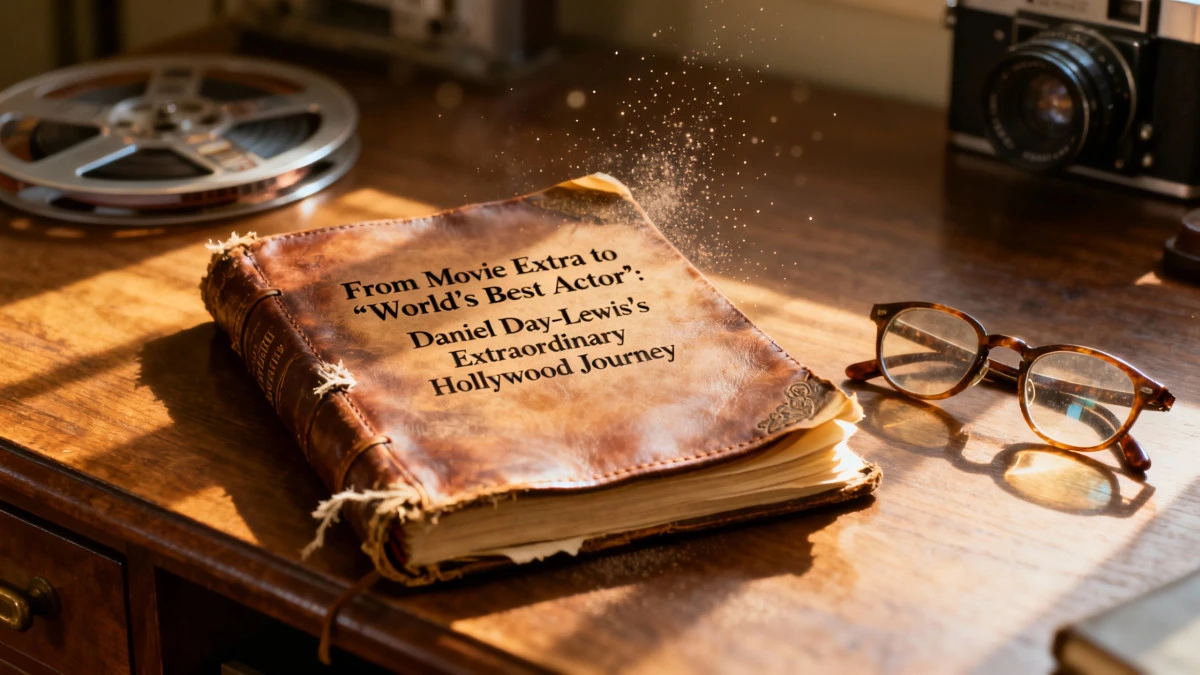From Anonymous Extra to First Steps on the Big Screen
Fifty-four years ago, a very young Daniel Day-Lewis made his film debut—not as a headline star, not even in a supporting role, but as a background extra. He appeared, uncredited, in the 1971 film Sunday Bloody Sunday at the age of just 13 or 14. At the time, the film caused quite a stir and even scored four Academy Award nominations—a far cry from Day-Lewis’s status today, but quite the springboard for a first experience on camera. With no significant professional acting background, this fleeting role nonetheless marked the very beginning of what would become a remarkable cinematic adventure.
Training, Early Roles, and Critical Attention
After that first screen appearance, Day-Lewis decided to pursue formal acting training in the theater before returning to film with more substantial roles, particularly throughout the 1980s. Some of his most notable early films include Gandhi (1982) and The Bounty (1984). But it was really with titles like My Beautiful Laundrette and A Room with a View (both released in 1985) that he began gaining serious critical attention. Even then, his obvious talent shone through diverse roles, and his determination to fully immerse himself in each character quickly caught the eye of critics and audiences alike.
The Relentless Pursuit of Perfection
Over the following years and decades, Daniel Day-Lewis built a reputation for being a relentless perfectionist, famous for his all-consuming dedication to his roles. This laser-focused commitment paid off in the biggest way possible: three Academy Awards for Best Actor—My Left Foot (1989), There Will Be Blood (2007), and Lincoln (2012)—a record in Oscar history. He was also nominated for In the Name of the Father (1993), Gangs of New York (2002), and Phantom Thread (2017). Such a rewarding journey helped seal his reputation as one of the greatest actors of his generation—many would even say, the greatest still living.
His performance as Christy Brown in My Left Foot, where he spent the entire shoot living in a wheelchair, perfectly showcased his immersive acting method. In There Will Be Blood, he portrayed the greedy and merciless Daniel Plainview with intensity so palpable that critics everywhere showered him with praise and awards. And in Lincoln, his ability to embody the empathy and gravity of the American president earned him that historic third Oscar.
- Three Academy Awards for Best Actor: a record in Oscar history
- Notable nominations: In the Name of the Father (1993), Gangs of New York (2002), Phantom Thread (2017)
- Unforgettable performances marked by total immersion in each role
The Legend, the Myth—and the Comeback
Awards aside, Day-Lewis’s rigorous approach—preparing for roles at length, staying in character on set, and deeply absorbing historical contexts—has only strengthened his almost mythical status. In 2017, he announced his retirement after Phantom Thread, but film enthusiasts everywhere buzzed with anticipation at news of his 2024 return in Anemone, directed and co-written by his own son, Ronan Day-Lewis. Unsurprisingly, expectations are sky-high for what might be another milestone in an already legendary career.
So, the story of his discrete beginnings—merely an extra in a film with four Oscar nominations—has become part of the legend. Today, there is broad agreement among film lovers and critics: Daniel Day-Lewis is not just one of the best actors of all time; for many, he truly is the “world’s best actor.”

